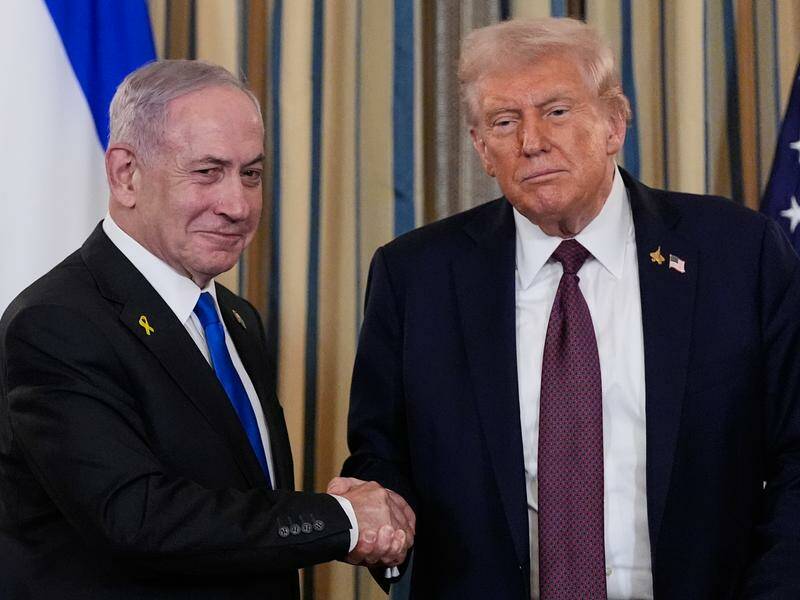
A US-sponsored ceasefire proposal for Gaza is now under consideration by Hamas following a 20-point plan presented by President Donald Trump. During a press briefing, Trump described the proposal as “beyond very close” to resolving the longstanding conflict in the region. The plan, shared with Hamas by mediators from Qatar and Egypt, was endorsed by Israeli Prime Minister Benjamin Netanyahu, who expressed confidence that it aligns with Israel’s war aims.
Trump emphasized the importance of collaboration, stating, “If we work together, we can bring an end to the death and destruction that we’ve seen for so many years.” Despite this optimism, it remains unclear what aspects of the proposal have alleviated Netanyahu’s previous concerns. Notably, Hamas was excluded from earlier negotiations that led to the formulation of this plan, which mandates the disarmament of the group—something Hamas has consistently rejected.
Details of the Proposal and Reactions
According to an official briefed on the discussions, Hamas negotiators indicated they would review the proposal in good faith and provide a response. Trump cautioned that should Hamas reject the offer, Israel would have full support from the US to take necessary actions. The proposal includes an immediate ceasefire, an exchange of hostages held by Hamas for Palestinian prisoners in Israel, a phased Israeli withdrawal from Gaza, and the establishment of a transitional government overseen by an international body.
As of now, Hamas has not issued an official response to the proposal. Observers noted that many elements of Trump’s 20-point plan have appeared in various ceasefire agreements over the past two years, which have been both accepted and subsequently rejected by both Hamas and Israel. A source close to Hamas criticized the proposal, labeling it as “completely biased to Israel” and asserting that it imposes “impossible conditions” aimed at undermining the group.
“What Trump has proposed is the full adoption of all Israeli conditions, which do not grant the Palestinian people or the residents of the Gaza Strip any legitimate rights,” stated a Palestinian official who requested anonymity.
Hamas’s response may be complex, as outright rejection could put the group at odds with several Arab and Muslim nations that have expressed support for the proposal. Foreign ministers from Qatar, Jordan, the United Arab Emirates, Indonesia, Turkey, Saudi Arabia, and Egypt issued a joint statement commending Trump’s efforts to end the conflict in Gaza.
Human Impact and Ongoing Violence
Some Palestinians have welcomed the initiative, hoping it might halt the violence and bring an end to the aerial bombardments. Yet, there are lingering concerns regarding Israel’s continued control over Gaza. Salah Abu Amr, a resident of Gaza City, articulated the sentiments of many by saying, “We want the war to end but we want the occupation army that killed tens of thousands of us to get out and leave us alone.” He expressed skepticism about the trustworthiness of both Trump and Netanyahu.
Meanwhile, Israeli forces have intensified their operations in Gaza City, advancing towards its center, which Netanyahu described as the final stronghold of Hamas. Reports indicate that Israeli bombardments in residential areas have escalated, resulting in further displacement of families. Recent attacks have resulted in civilian casualties, including the deaths of a mother and her five children during separate incidents in Deir Al-Balah and Khan Younis.
The situation remains fluid, with both sides facing immense pressure as the prospect of peace hangs in the balance. As Hamas deliberates its response to Trump’s proposal, the focus will continue to be on the humanitarian implications and the potential for a lasting resolution to the conflict in Gaza.






